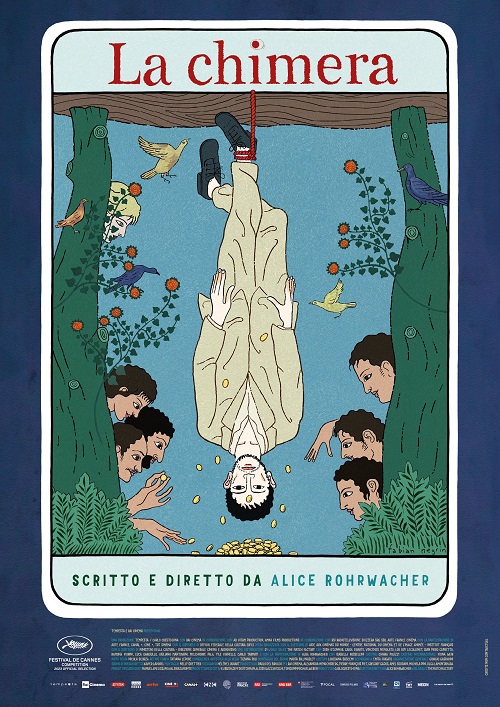“La Chimera” brings the invisible to life
TORONTO – It’s no coincidence that “La Chimera’s” cast includes the illustrious Isabella Rossellini, of Neo-Realist royalty – Roberto Rossellini being her father and the father of the artistic movement [Neo-realism] in film. The quest to construct films naturalistically began in the 40s which saw Italian filmmakers, initiated by Rossellini’s “Roma Citta Aperta”, flauntingly avoid the artifice of studio-made films with an almost cultish dedication to realism.
Long meandering takes – countering the frenetic editing that American film was and is typically known for – became the hallmark of the movement, along with shooting on-location and creating an aesthetic mirroring that of documentary films. Neo-realism’s influence on the industry and its artists continues, as its ideas and tenets have arguably become the fabric of not only independent filmmaking, but has seen Studio films hire auteurs who abide by the philosophy.
“La Chimera’s” writer/director Alice Rohrwacher hails from Tuscany and her latest film is more than just an ode to the works of Rossellini, Fellini, De Sica and the like. As Isabella Rossellini says, “Alice brings a new eye, the magic, the humour…she brought a whole new breath to it”. Big words from the Master’s daughter.
“La Chimera” is the final film of a trilogy – linked together thematically – which includes “Le Meravigle” and “Lazzaro Felice”. Rohrwacher, with these three films, explores her “childhood curiosities” about man’s relationship with the past, and with the civilizations whose legacies we take for granted, be it their creations or philosophies. The film follows recently incarcerated Arthur, a former British Archaeologist (Josh O’Connor) who unsuccessfully moonlights as a grave robber. Upon his release he returns to his criminal associates and activities in Italy, and to his [now missing] ex-girlfriend’s house where we meet her mother Flora (Isabella Rossellini). The plot however is secondary, like a song’s lyrics whose verses are a mere backdrop to its melodic waves.
Like a Pink Floyd track, no single element rises above the musical convergence and flow. In “La Chimera”, characters’ moods undulate and the plot swerves, giving it an unstable yet mesmerizing effect. Like a dream. Perhaps for Rohrwacher, dreaminess offers a space where we can reflect on the things hidden deep in our subconscious – a metaphor for a buried past.
While on its face it’s a film about grave robbing, it’s much more a story about what lies beyond the grave or what we’ve lost – and this is neatly represented through Arthur’s missing girlfriend. Could she be dead, as some of his comrades insist, and if she is, why does Arthur yearn after her memory? The past, as Rohrwacher says, “leads us to reflect on what we leave behind. And when we make a movie that’s what we do. It’s closely connected to that”. “La Chimera” slyly incites the viewer to ponder the deeper questions of our existence, while treating us to strange rural Italian oddities we wouldn’t otherwise encounter.
Watch La Chimera on Prime Video
Massimo Volpe is a filmmaker and freelance writer from Toronto: he writes reviews of Italian films/content on Netflix





